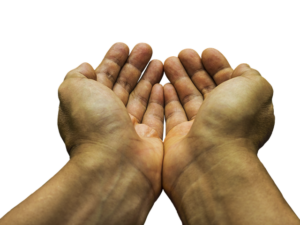1 Peter 5:7-8
“Cast all your anxiety on him because he cares for you. Be alert and of sober mind. Your enemy the devil prowls around like a roaring lion looking for someone to devour.”
When are we most vulnerable to fear?
This is an important question to consider. If the enemy of our souls is on the prowl like a lion, then sometimes we must think like prey. A lion won’t waste its strength chasing down the strongest and fastest gazelle in the flock. He will look for the most vulnerable and pounce. We have to know when we are vulnerable so we can seek protection. Otherwise our fears can be a powerful weapon against us and the rest of our flock.
In my early 20s, a mentor taught me the acronym “HALT”. You’ve probably heard it before too. It reminds us to stop, and if possible to avoid making life-altering decisions when we’re Hungry, Angry, Lonely, or Tired. Why? Because these are the times that we are vulnerable and more likely to make a decision we later regret. These are opportunities for our fears to be exploited and the risk is that they get the better of us.
We aren’t always strong enough to stand and fight. It would be foolish to try. If we don’t recognize our own human limitations in those moments, we risk losing the battle. Yes, the Lord is our strength. But he is also our refuge. Sometimes he is equipping us and leading us to the front lines, but other times he is calling us to retreat to his protection and rest. It is vitally important that we learn to recognize both.
Yes, my soul, find rest in God;
my hope comes from him.
Truly he is my rock and my salvation;
he is my fortress, I will not be shaken.
My salvation and my honor depend on God;
he is my mighty rock, my refuge.
Trust in him at all times, you people;
pour out your hearts to him,
for God is our refuge.
– Psalm 62:5-8
If I continue in the battlefield analogy, there are times when we have fought a long, hard battle and need to rest. There are times when we are wounded and need to heal. A soldier who cannot recognize these needs and insists on carrying on endangers himself and everyone around him.
We are people of action. We value the doing, the accomplishing, the performing. There is a time for that. We are not called to a life of laziness, passivity, or indifference.
But we also need to know when to order a halt. We need to learn how to tag out, retreat, and recover. The Bible reminds us over and over that God is our refuge, and we have a safe place to hide out for a while.
If these months of pandemic and turmoil have left you exhausted, it may be time to rest so you are less vulnerable to the enemy. Is fear starting to gain the upper hand in your heart? Are you at risk of spreading those fears to those around you? Maybe it’s time to take refuge. Cast your anxiety on him, pour your heart out to him, and trust him to be your secure fortress.




